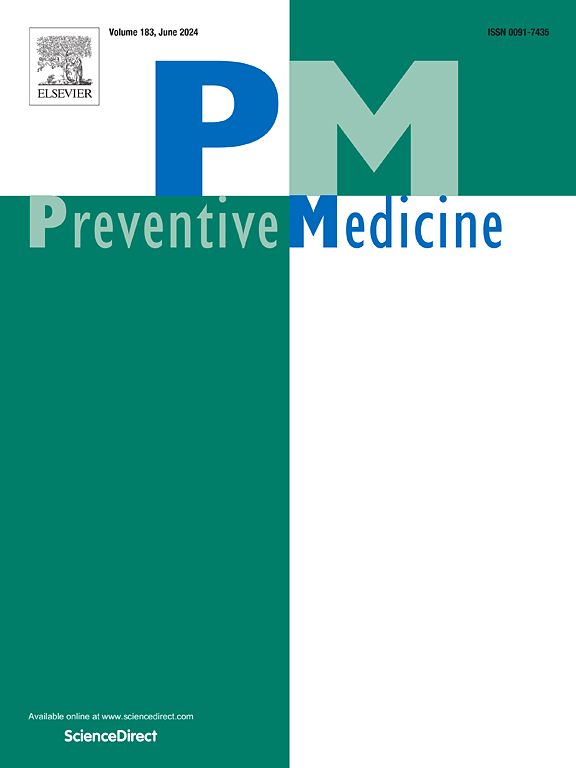Exploring the mediating role of Charlson comorbidity index in the association between body mass index and depression in U.S. adults: NHANES 2007–2020
IF 3.2
2区 医学
Q1 MEDICINE, GENERAL & INTERNAL
引用次数: 0
Abstract
Objective
The relationship among body mass index (BMI), Charlson comorbidity index (CCI), and depression forms a complex interplay that affects both physical and mental health. However, whether CCI mediates the association between BMI and depression remains unclear. In this study, we aimed to elucidate the mediating role of CCI in the relationship between BMI and depression.
Methods
This study used data from the National Health and Nutrition Examination Survey, a program of the National Center for Health Statistics in the United States, including 23,639 participants from 2007 to 2020. Wilcoxon rank-sum and Rao-Scott adjusted chi-square tests were employed to compare characteristics between adults with and without depression. Weighted logistic regression and restricted cubic spline models were applied to investigate the pairwise associations among BMI, CCI, and depression. Mediation analysis was performed to assess whether CCI mediated the relationship between BMI and depression.
Results
Of the 23,639 participants, 2128 (9.0 %) had depression. Significant associations were observed between BMI and CCI; CCI and depression; and BMI and depression (P < 0.001). A U-shaped relationship between BMI and depression odds was identified, with the lowest odds at a BMI of 23 kg/m2. Mediation analysis revealed that CCI partially mediated the BMI-depression relationship, accounting for 19.5 % of the total effect.
Conclusions
The results suggest that CCI plays a mediating role in the association between BMI and depression, and that improved chronic disease management may be associated with lower odds of depression in high BMI populations.
探讨Charlson共病指数在美国成年人体重指数和抑郁症之间的中介作用:NHANES 2007-2020
目的体质指数(BMI)、Charlson共病指数(CCI)与抑郁症之间存在复杂的相互作用关系,影响身心健康。然而,CCI是否介导BMI和抑郁之间的关联尚不清楚。在本研究中,我们旨在阐明CCI在BMI与抑郁关系中的中介作用。方法本研究使用了美国国家卫生统计中心国家健康与营养检查调查项目的数据,包括2007年至2020年的23,639名参与者。采用Wilcoxon秩和和Rao-Scott校正卡方检验比较有和没有抑郁症的成年人的特征。应用加权逻辑回归和受限三次样条模型研究BMI、CCI和抑郁之间的两两关联。通过中介分析评估CCI是否介导BMI与抑郁之间的关系。结果在23639名参与者中,2128名(9.0%)患有抑郁症。BMI与CCI之间存在显著相关性;CCI与抑郁;BMI和抑郁(P <;0.001)。BMI与抑郁几率呈u型关系,BMI为23 kg/m2时,抑郁几率最低。中介分析显示,CCI部分中介了bmi -抑郁关系,占总效应的19.5%。结论CCI在BMI与抑郁之间起中介作用,改善慢性疾病管理可能与高BMI人群抑郁发生率降低有关。
本文章由计算机程序翻译,如有差异,请以英文原文为准。
求助全文
约1分钟内获得全文
求助全文
来源期刊

Preventive medicine
医学-公共卫生、环境卫生与职业卫生
CiteScore
7.70
自引率
3.90%
发文量
0
审稿时长
42 days
期刊介绍:
Founded in 1972 by Ernst Wynder, Preventive Medicine is an international scholarly journal that provides prompt publication of original articles on the science and practice of disease prevention, health promotion, and public health policymaking. Preventive Medicine aims to reward innovation. It will favor insightful observational studies, thoughtful explorations of health data, unsuspected new angles for existing hypotheses, robust randomized controlled trials, and impartial systematic reviews. Preventive Medicine''s ultimate goal is to publish research that will have an impact on the work of practitioners of disease prevention and health promotion, as well as of related disciplines.
 求助内容:
求助内容: 应助结果提醒方式:
应助结果提醒方式:


